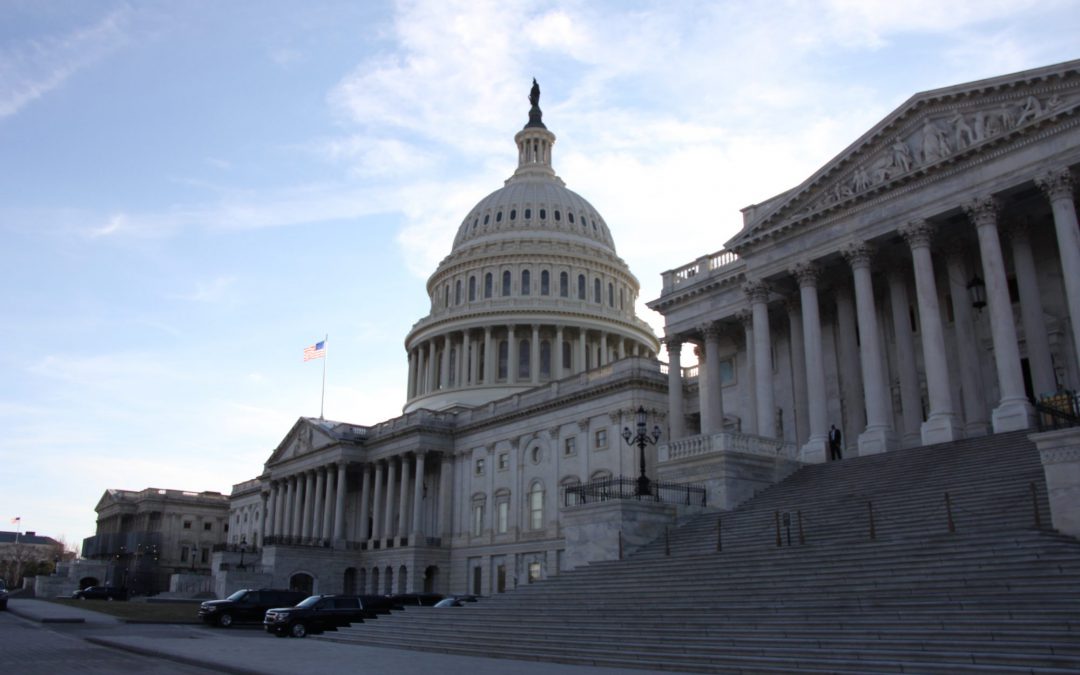WASHINGTON –– The House passed a bill Wednesday that, if enacted, would enforce punitive measures for health care providers who don’t attempt to preserve the life of an infant born after a failed abortion.
H.R. 26, dubbed the Born-Alive Abortion Survivors Protection Act, is unlikely to be taken up by the Democratically controlled Senate. But if the bill becomes law it would require doctors to immediately transport infants born after failed abortions to the nearest hospital.
Health care providers who fail to immediately place newborns on lifesaving care and move them to a hospital could face fines or up to five years in prison, regardless of the mother’s wishes or the immediate needs of the infant.
Babies born after failed abortion attempts are extremely rare. According to the Center for Disease Control, only 588 of 315,392 infant deaths between 2003 and 2014 involved an induced termination.
According to Kate Masur, author and professor of History at Northwestern University, this bill is more representative than it is practical –– since its applications are few and far between, she said it mostly intends to stigmatize abortion.
“Many, many Republicans care deeply about trying to restrict or even ban abortion, and many have run on platforms associated with trying to restrict or ban abortion,” Masur said. “They’re wanting to show their constituents that they’re serious about this, and they’re going to put forward measures that are designed to not just restrict abortion, which this measure does not, but stigmatize abortion.”
Lifesaving care is not always recommended by doctors; a 2015 study in the New England Journal of Medicine on preterm births recommended against the intervention required in this bill for infants born before 22 weeks of gestation.
Per the CDC, less than one percent of abortions in 2020 were performed at or after 21 weeks of gestation.
“We can’t even get into the specifics of whether this is practical,” said Moises Serrano, a spokesperson for Whole Woman’s Health, a DC-area abortion clinic. “No one has ever experienced this (a failed abortion) in any of our clinics… this is a super niche, almost impossible scenario being used to distract the American people.”
Dr. Diane Horvath, an OB-GYN based in Maryland and a Fellow with Physicians for Reproductive Health, said babies are rarely ever born after an abortion attempt. Instead, the bill intends to deliberately confuse constituents about the complex circumstances some families with terminally ill fetuses are forced to face.
If a fetus is known to have a lethal abnormality, she said, a family may choose to induce labor, knowing the fetus will either not survive the labor process or they will die shortly after birth. Families receive extensive counseling and some choose to give birth so they might be able to say goodbye to their baby.
When the baby is born, end of life palliative care is provided.
“The idea that this loving option could be taken away from these families, or that terminally ill babies would be subjected to futile medical interventions against the will of their parents, is heartbreaking to me as both a clinician and a parent,” Horvath said.
Republican representatives who spoke in favor of the bill maintained that it intends to protect the fundamental right to life of a newborn. Though the bill does say that an infant born alive after an abortion has the same rights as a human being, that is not a change from today’s legal standards.
Some Republican representatives incorrectly claimed in debate Wednesday that the United States currently permits infanticide. Majority Leader Steve Scalise (R-La.) claimed the law in some states permits an abortion provider to end a baby’s life after birth.
“If a baby is born alive outside the womb, alive, how could you kill that baby and that be legal?” Scalise said. “How is that not already murder? I questioned how it wasn’t myself. And yet in a number of states it is legal and happening today… In America, there are some states that allow that baby to be killed.”
Masur said killing an infant is currently illegal in every state, as well as on the federal level.
“In 2002, Congress passed and President Bush signed a law that is very, very similar to this one,” she said. “If a child, a baby, is born in the process of a failed abortion, it’s required that medical professionals have to give it medical care. We already have a law in the books that’s like this.”
The federal law was applied in 2013 when Kermit Gosnell was found guilty of three counts of first-degree murder for the deaths of three babies born alive in his Philadelphia abortion clinic. His case came after the Born-Alive Infants Protection Act of 2002.
In the end, Masur said, the bill simply serves to further stigmatize abortion and impose harsher consequences for abortion providers –– she said it does not make any significant changes to federal law.
Democratic representatives said the bill intends to reach even farther. Representative Jarrold Nadler (D – NY) said the Born-Alive bill aims to deter providers from executing abortion procedures by adding fines and a five-year prison sentence to the 2002 legislation.
He added the Born-Alive bill insults abortion providers in the process.
“The bill’s implication that providers who perform abortions act in a criminal matter that would result in an infant’s death, or that a provider cannot be trusted to take adequate measures to save a baby’s life, is insulting and untrue,” he said.

